Ewan Klein
Integrating Know-How into the Linked Data Cloud
Apr 15, 2016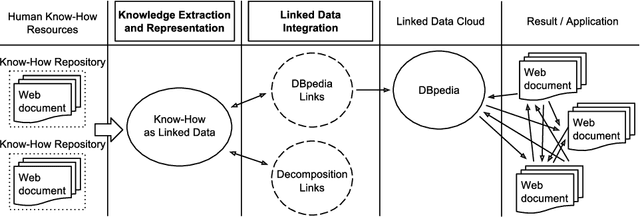

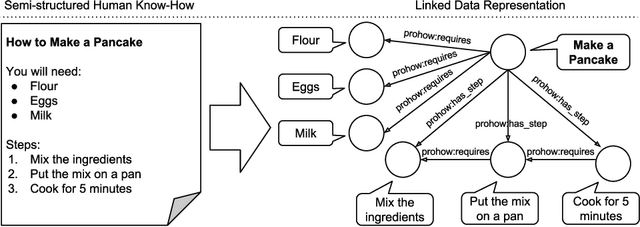

Abstract:This paper presents the first framework for integrating procedural knowledge, or "know-how", into the Linked Data Cloud. Know-how available on the Web, such as step-by-step instructions, is largely unstructured and isolated from other sources of online knowledge. To overcome these limitations, we propose extending to procedural knowledge the benefits that Linked Data has already brought to representing, retrieving and reusing declarative knowledge. We describe a framework for representing generic know-how as Linked Data and for automatically acquiring this representation from existing resources on the Web. This system also allows the automatic generation of links between different know-how resources, and between those resources and other online knowledge bases, such as DBpedia. We discuss the results of applying this framework to a real-world scenario and we show how it outperforms existing manual community-driven integration efforts.
* The 19th International Conference on Knowledge Engineering and Knowledge Management (EKAW 2014), 24-28 November 2014, Link\"oping, Sweden
A Linked Data Scalability Challenge: Concept Reuse Leads to Semantic Decay
Mar 05, 2016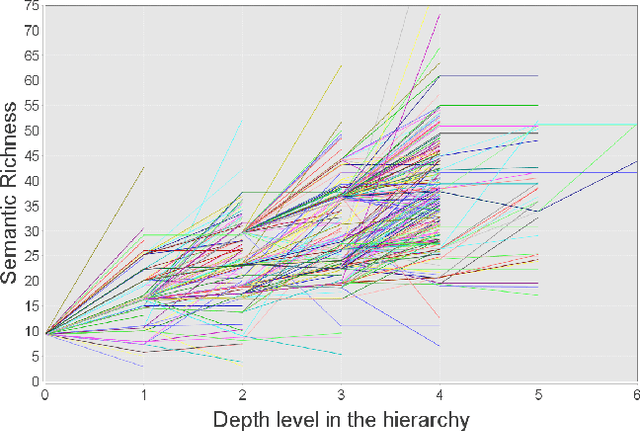
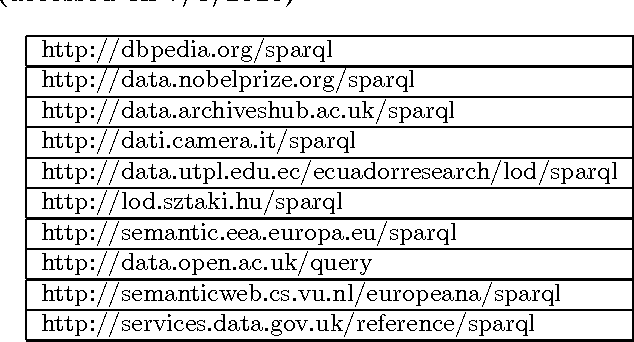
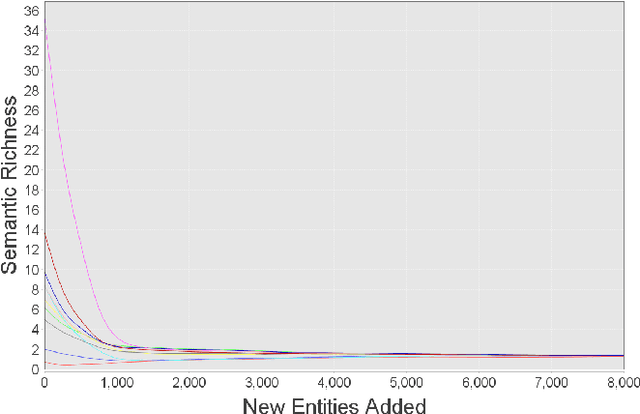
Abstract:The increasing amount of available Linked Data resources is laying the foundations for more advanced Semantic Web applications. One of their main limitations, however, remains the general low level of data quality. In this paper we focus on a measure of quality which is negatively affected by the increase of the available resources. We propose a measure of semantic richness of Linked Data concepts and we demonstrate our hypothesis that the more a concept is reused, the less semantically rich it becomes. This is a significant scalability issue, as one of the core aspects of Linked Data is the propagation of semantic information on the Web by reusing common terms. We prove our hypothesis with respect to our measure of semantic richness and we validate our model empirically. Finally, we suggest possible future directions to address this scalability problem.
A Semantic Web of Know-How: Linked Data for Community-Centric Tasks
Oct 29, 2014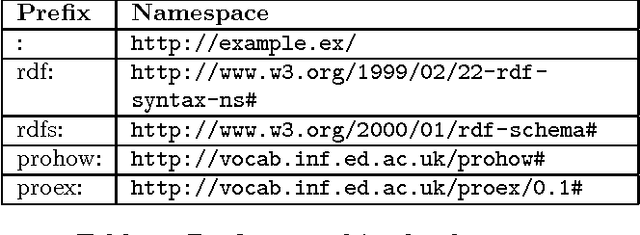
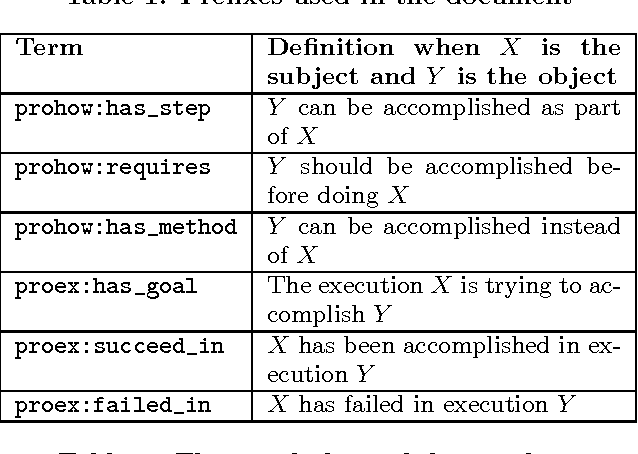
Abstract:This paper proposes a novel framework for representing community know-how on the Semantic Web. Procedural knowledge generated by web communities typically takes the form of natural language instructions or videos and is largely unstructured. The absence of semantic structure impedes the deployment of many useful applications, in particular the ability to discover and integrate know-how automatically. We discuss the characteristics of community know-how and argue that existing knowledge representation frameworks fail to represent it adequately. We present a novel framework for representing the semantic structure of community know-how and demonstrate the feasibility of our approach by providing a concrete implementation which includes a method for automatically acquiring procedural knowledge for real-world tasks.
Learning Vague Concepts for the Semantic Web
Oct 19, 2014
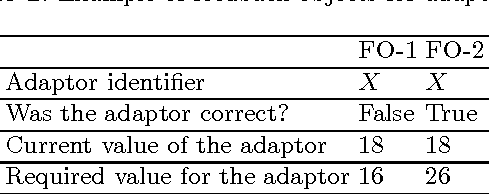
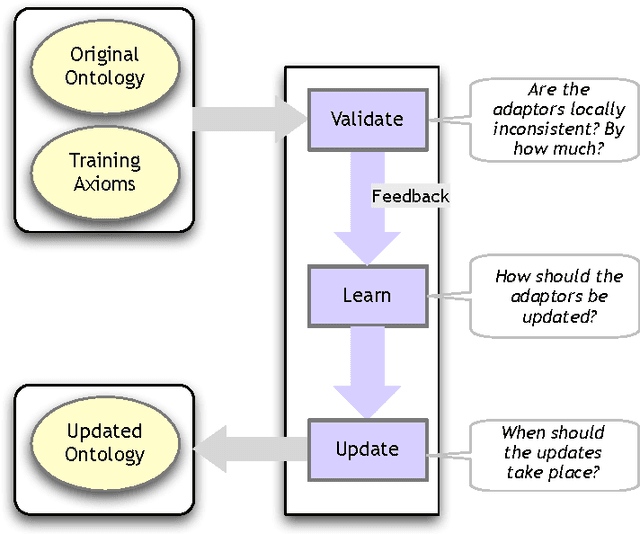
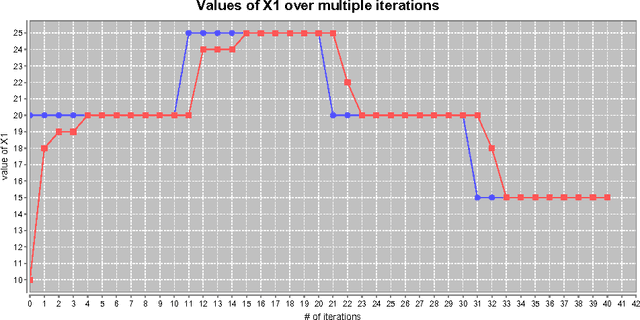
Abstract:Ontologies can be a powerful tool for structuring knowledge, and they are currently the subject of extensive research. Updating the contents of an ontology or improving its interoperability with other ontologies is an important but difficult process. In this paper, we focus on the presence of vague concepts, which are pervasive in natural language, within the framework of formal ontologies. We will adopt a framework in which vagueness is captured via numerical restrictions that can be automatically adjusted. Since updating vague concepts, either through ontology alignment or ontology evolution, can lead to inconsistent sets of axioms, we define and implement a method to detecting and repairing such inconsistencies in a local fashion.
 Add to Chrome
Add to Chrome Add to Firefox
Add to Firefox Add to Edge
Add to Edge